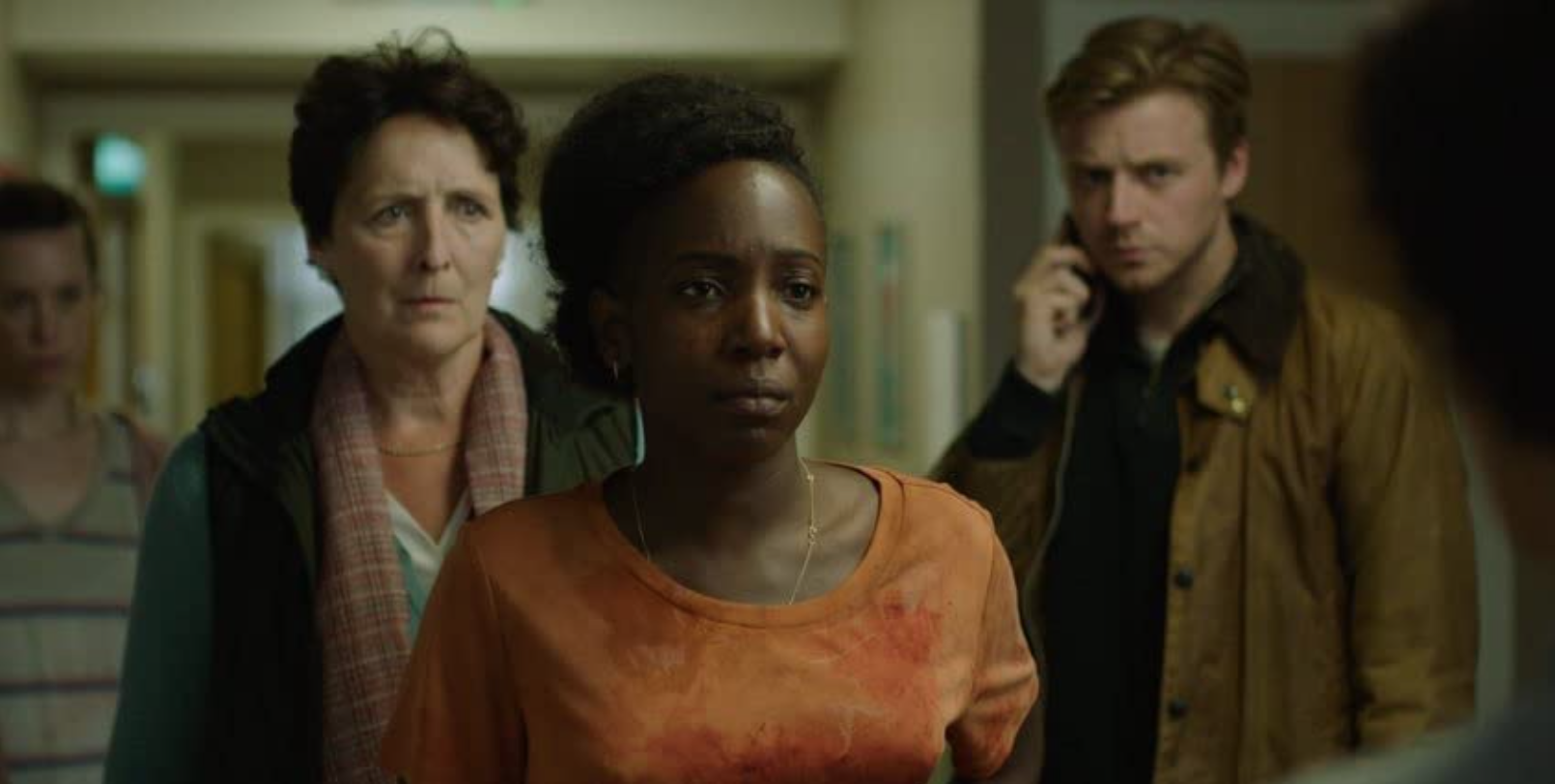Kindred tells the story of a pregnant women who suspects that the baby’s relatives have ill intentions when it comes to her and the child she is carrying. After the death of the father she unwillingly moves into the family home and starts picking up on clues that everything might not be as it seems. Instantly, this synopsis draws you in. And you spend the entirety of the movie contemplating whether Charlotte, played by Tamara Lawrance, is being gaslighted from here to kingdom come.
You spend the other half of the movie in awe of Lawrance’s performance alongside that of Fiona Shaw, who plays the mother-in-law Margaret. They instantly have a connection, even if it’s an antagonist one, that leaves you intrigued and wanting more. Lawrance also made you sympathize with her character and wonder if she really was being taken advantage of. While Shaw delivered a calm and cool performance with bouts of true terror and authority in her voice.

That’s where the good of Kindred ends and the questioning begins. I honestly don’t know if I liked Kindred of not. I certainly didn’t love it but I’m not even sure if it’s good enough to warrant a long review. I will say that I felt supremely uncomfortable with the way that Charlotte’s character was treated. She was black woman being held captive by white saviors who thought they knew what was best for Charlotte just because. And that right there left a nasty taste in my mouth.
Charlotte’s pain also reminded me of a study I read a couple years ago about “racial bias in pain assessment and treatment recommendations.” No one respected Charlotte or how she was feeling enough to understand her pain or why she was seeking help outside of the family. They continued to put her in situations where Charlotte questioned herself and her sanity to the point where she was worn out, desperate, and scared. And while some might say this has nothing to do with the fact that Charlotte’s a black woman, I’ve got to disagree. And this is coming from a Latina.
Being black is a part of Charlotte’s life and affects the circumstances she finds herself in. And no matter how people try to paint this story as something not about race, it is. If Charlotte were a white woman, people would’ve listened to her and believed her. They wouldn’t have let her pain continue and brush off her concerns because she was a “mad woman” who inherited a “sickness” from her deeply disturbed mother. And they certainly wouldn’t have locked her up like an animal in the house Charlotte hated being in and the hospital room we last saw her as the white saviors got away, scott free.

Everyone also set aside what Charlotte wanted for the betterment of the child she was carrying. She no longer was a woman or a person with rights. Charlotte was a vessel for procreation who didn’t know what was best for her so of course the white people around her had to make those decisions for her. It makes her earlier stance of the pregnancy even more tragic because she didn’t want to become the host of a life thrust upon her. She ultimately became what she feared the most and we’re supposed to be ok with that?
It’s gonna be a no for us, Fangirlish readers.
A no to Kindred.
A no to stories that don’t listen to women because she might be crazy.
A no to black women being forced to do things they don’t want.
No to all of that.


But isn’t all this kind of the point?